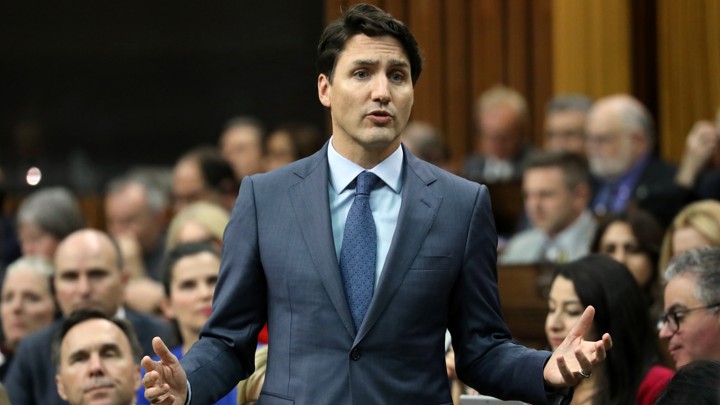Leadership for the progressive political agenda is an issue in the United States as the 2020 election looms and in Canada, our progressive politicians may be reassessing the leadership of the Liberals.
 |
| Source: https://cdn.theatlantic.com/assets/media/img/mt/2019/04/RTS2G7L0/lead_720_405.jpg?mod=1554692007 |
Two interesting political groups are millennials and evangelicals. Friedrich Hansen reports that millennials are most likely to finally become fed up with self-victimization.
Millennials are less prone to addiction, psychic infirmities or drop out, than their predecessors the baby boomer, they seem less fragile at the price of many carried through life on the comfortable fiction of victim ideology. They actually seem to mistake the inevitable every day portion of self suppression as being state-enforced, which means they cannot discern between inner and outer person. In the same vain black Princeton Millennials recently announced self-pityingly: “We’re sick and tired of being sick and tired”. Well let’s skip the concept of student victimology all together and hand it back to the really disadvantaged and downtrodden. This is the challenge for enhancing resilience with Millennials: teaching them self-transcendence.1
Frank Furedi, for the time, recommends: “Unfortunately, most people who buy into this philosophy can’t be reasoned out of it. Our job is to dissuade people who might be considering that way of thinking.”
 |
| Furedi values |
Evangelicals helped get Trump into the White House. Pete Buttigieg believes the religious left will get him out. Peter Buttigieg wants a “less dogmatic” religious left to counter the religious right, an unofficial coalition of religious conservatives that for decades has helped get mostly Republicans into office.
“I think it’s unfortunate [the Democratic Party] has lost touch with a religious tradition that I think can help explain and relate our values,” he said. “At least in my interpretation, it helps to root [in religion] a lot of what it is we do believe in, when it comes to protecting the sick and the stranger and the poor, as well as skepticism of the wealthy and the powerful and the established.”2
David Frum writes there were always two cracks visible in the face Trudeau presented to the world, and over the past three weeks, those lines have widened.
The first flaw: When frustrated or disappointed, he loses his cool. As one person on the receiving end of his ill temper put it to me, “He yells when he does not get his way, then gloats when he does.” The second? Trudeau does not always accurately think through ultimate consequences of his actions.
Together, those two fault lines create a dangerous formula for bad decision making in times of crisis.3
The search for leadership in for the progressive agenda in Canada needs to focus on the ability to seek common ground and makes progress with (1) climate change leadership, (2) indigenous reconciliation, and (3) transfer of jobs to the green economy of alternate energy and non carbon transportation.
References
1
|
(n.d.). Populism Rejuvenated: “Woke” Millennials - geopolitica.ru. Retrieved April 1, 2019, from https://www.geopolitica.ru/sites/default/files/woke_millennials.pdf
|
2
|
(2019, March 29). Pete Buttigieg says Trump got into the White House in 'bad faith.' He .... Retrieved April 3, 2019, from https://www.washingtonpost.com/religion/2019/03/29/evangelicals-helped-get-trump-into-white-house-pete-buttigieg-believes-religious-left-will-get-him-out/
|
3
|
(2019, April 8). SNC-Lavalin: Justin Trudeau's Fall From Grace - The Atlantic. Retrieved April 8, 2019, from https://www.theatlantic.com/ideas/archive/2019/04/snc-lavalin-justin-trudeaus-fall-grace/586645/
|
No comments:
Post a Comment